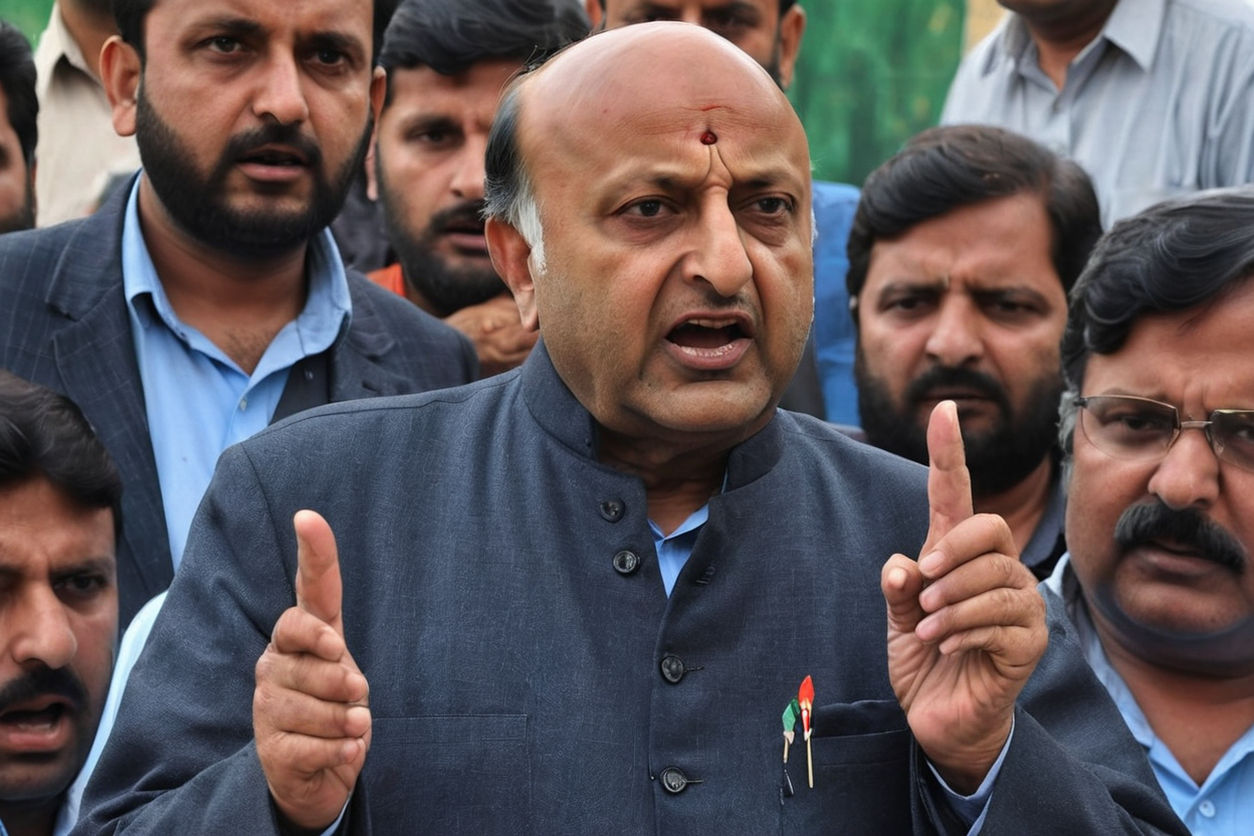As the much-anticipated vote counting begins in Jammu and Kashmir, AIP MP Engineer Rashid offers a pointed reflection on the nature of political power. His statement, “Power is not permanent,” resonates across the region, sparking discussions about the transitory nature of political authority and governance in the context of the region’s shifting political landscape. The elections, which have seen unprecedented voter turnout, mark a significant moment in the political history of Jammu and Kashmir.
Election Day Tensions and Anticipation
The atmosphere is electric as vote counting unfolds. For many, the results will reflect the changing preferences of a region that has seen political turbulence. Engineer Rashid represents the Awami Ittehad Party (AIP), a regional party that has been vocal about local issues and the need for a different political direction. His statement about the fleeting nature of power comes at a time when people are eager to see new leadership, and his party hopes to gain ground in the state.
Why Engineer Rashid’s Words Matter
When AIP MP Engineer Rashid says that power isn’t permanent, he’s speaking from a place of deep understanding of the region’s complex political landscape. Jammu and Kashmir, having undergone significant political and constitutional changes, is currently in a transitional phase. His reflection serves as both a caution to political leaders and a reminder to the public about the temporary nature of political authority.
Historical Context: Political Shifts in Jammu and Kashmir
Since the abrogation of Article 370, Jammu and Kashmir’s political landscape has changed dramatically. The region, which was once a state with special status, has been restructured into a Union Territory. This shift has impacted local politics, with newer parties and figures emerging as key players in the scene. Engineer Rashid’s party, AIP, is one such example, advocating for regional autonomy and addressing local grievances.
Voter Sentiment and Expectations
With a high voter turnout, there’s a sense of urgency in the air. The people of Jammu and Kashmir, long accustomed to political instability, are hoping for leaders who can bring about meaningful change. Rashid’s comments suggest that no leader should take their position for granted. The voters are looking for solutions to economic challenges, governance reforms, and peace in a region that has seen decades of conflict.
Engineer Rashid’s Political Journey
Engineer Rashid isn’t new to the political landscape. Having been a prominent voice for the people of Jammu and Kashmir, he has advocated for peace, local governance, and resolving the region’s issues through dialogue. His comments on the impermanence of power reflect his understanding of how politics in the region works – it’s often about navigating through turbulent waters.
The Road Ahead for Jammu and Kashmir
As the election results begin to come in, it remains to be seen how AIP MP Engineer Rashid’s views will resonate with the people. Will his candid acknowledgment of the transient nature of power work in his favor, or will the electorate favor more traditional parties? One thing is certain: Jammu and Kashmir’s political journey is far from over.
Impact of Article 370 on This Election
This election marks the first major electoral process since the removal of Article 370. The shift from statehood to Union Territory has brought about changes not only in governance but also in how the people of Jammu and Kashmir view their political leaders. Engineer Rashid’s statement can also be seen as a reflection on this monumental shift – a reminder that political winds can change at any moment.
Conclusion
The ongoing vote counting in Jammu and Kashmir is a pivotal moment for the region. AIP MP Engineer Rashid’s statement, “Power is not permanent,” serves as a reminder of the impermanence of political authority and the need for leaders to focus on serving the people rather than holding onto power. As the results begin to unfold, it’s clear that Jammu and Kashmir’s political journey is just beginning.
FAQs
1. Who is Engineer Rashid?
Engineer Rashid is a prominent political figure from Jammu and Kashmir, serving as the Member of Parliament from the Awami Ittehad Party (AIP).
2. What is the significance of his statement about power?
His statement highlights the transient nature of political power and serves as a reminder to both leaders and voters that political authority is never permanent.
3. Why is this election important?
This election is the first major one since the abrogation of Article 370, marking a significant political shift in the region.
4. How has the political landscape changed in Jammu and Kashmir?
With the restructuring of Jammu and Kashmir into a Union Territory, local politics has seen new parties and leaders emerging, aiming to address regional issues.
5. What challenges do political leaders face in Jammu and Kashmir?
Leaders in Jammu and Kashmir face the challenges of political instability, regional grievances, economic development, and ensuring peace in a historically conflict-ridden area.
